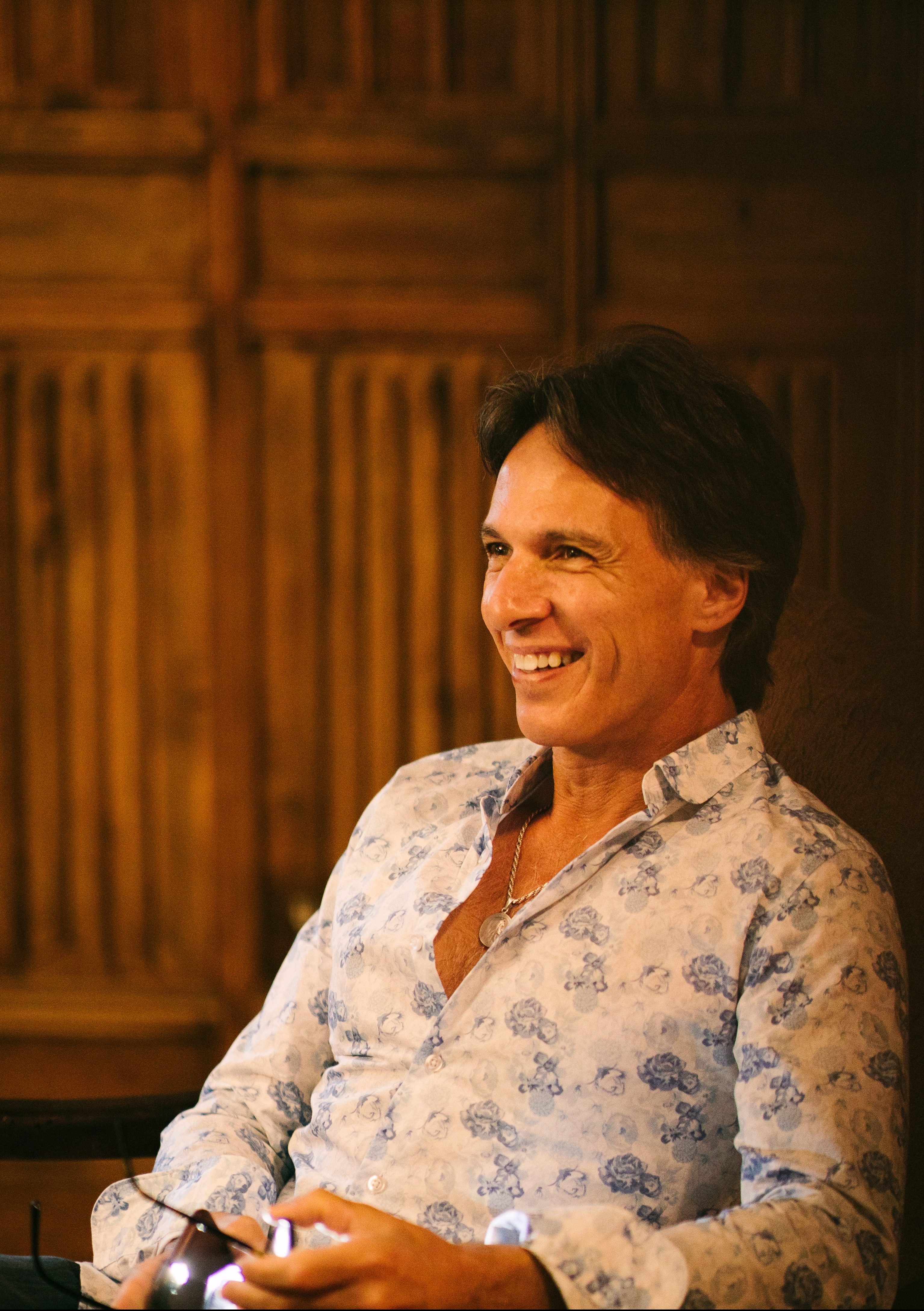 Dr. Stephan A. Hoeller is an internationally known leader in the contemporary Gnostic movement. He was born in Hungary and has resided in the U.S. since 1952. He retired as Professor of Religious Studies at the College of Oriental Studies in Los Angeles, has authored five books, published by Quest Books, and has led the Gnostic community (Ecclesia Gnostica) in Los Angeles for over 50 years. You can hear Dr. Stephan A. Hoeller give his weekly lecture at the Ecclesia Gnostica every Friday night at 8 p.m. or attend a service on Sunday at 11 a.m. Besant Lodge, 2560 N. Beachwood Drive, Hollywood CA 90068.
Dr. Stephan A. Hoeller is an internationally known leader in the contemporary Gnostic movement. He was born in Hungary and has resided in the U.S. since 1952. He retired as Professor of Religious Studies at the College of Oriental Studies in Los Angeles, has authored five books, published by Quest Books, and has led the Gnostic community (Ecclesia Gnostica) in Los Angeles for over 50 years. You can hear Dr. Stephan A. Hoeller give his weekly lecture at the Ecclesia Gnostica every Friday night at 8 p.m. or attend a service on Sunday at 11 a.m. Besant Lodge, 2560 N. Beachwood Drive, Hollywood CA 90068.
Interview conducted by Senior Writer, Daniel Pape.
DANIEL PAPE: Stephan, this is a real privilege for me to be here with you. As you know, I’ve had the opportunity to attend your weekly lectures over the past six months or so and in that time I’ve learned a great deal. I would appreciate it if you would kindly give our audience not only an introduction to Gnosis, but a glimpse into how someone might best apply Gnosis in their lives.
DR. STEPHAN A. HOELLER: Alright. Maybe a few definitions will help. Gnosis, spelled g-n-o-s-i-s is a Greek word, which literally is translated as knowledge. Although, various authorities agree that it is not the kind of knowledge that would deal with factual or scientific data, but rather it’s knowing of subtle elements and powers that relate to what we call consciousness. In fact, I think Elaine Pagels, one of the early scholars on this particular subject, said that the term that approximates the meaning of Gnosis most closely is consciousness. There were times in history, particularly in the last couple of centuries of the era BC, in which the practice and knowledge of the desirability of such Gnosis was very widely spread, especially within the early Mediterranean culture. People felt that in addition to practical and worldly knowledge, the human is well-advised to seek a higher type of understanding. As one of the late 19th century great translators, G.R.S. Mead, named it in one of his books, “the knowledge of the things that are.”
It’s an interior intuitive acquaintance with the realities that are beyond the ordinary but which still are very important for the human being. Over the last 50 years there has been a recovery of this type of approach in our culture, as the result of the discovery of ancient literature in the late 1940s, including the Nag Hammadi library. So there is much more attention being given to this factor. Perhaps we should elucidate further because this is just a basic definition.
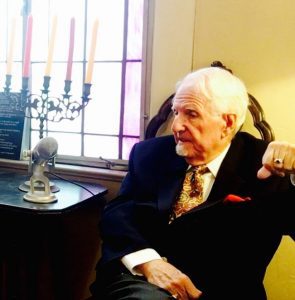
DANIEL PAPE: From my understanding, Gnosis has a lot to do with mythos and archetypes. If this is correct, can you describe in further detail what type of limitations facts possess that mythos and archetypes do not?
DR. STEPHAN A. HOELLER: All right, I’ll expound a little bit, and then connect it back to Gnosis. A wise man who was a buddhist, Lama Anagarika Govinda, was asked about, and also wrote about, the limitations of facts. He said that facts are not very interesting because they are finished, they have happened already. A fact is something that is of the past. There is no true creativity inherent in a fact. A fact, once recognized, becomes what we call “the way it is” but then you have to go on to something else, perhaps another fact. So you see, facts are somewhat overrated in our culture. Now then, when we are dealing with Gnosis, to put it theoretically, we are dealing with a realm, a reservoir of insight, an insight producing consciousness which is ordinarily not used by people. There is only a very small amount of our psycho-spiritual potential that we utilize or even have contact with.
Yet, all the testimony of the ages, and for that matter the testimony of quite a few contemporary people, declares that such consciousness, such awareness, is possible for the human being. There are incidents, I would say in the life of everyone, wherein they partake of an awareness, of a consciousness that is extraordinary or non-ordinary. These incidents, if they are then utilized, are very important and very useful for the individual on many different levels. It is this kind of insight that we refer to as Gnosis.
It is to be understood, however, that the way such insights come to people are for the most part in symbolic and mythic terms. The insight that is disclosed is not of a factual nature. We might say it’s not even of an intellectual categorical nature or an emotional nature, but something else. That something else, in order to be assimilated by the individual, is usually put into mythic and symbolic form. It’s really the individual psychology that translates and processes the experience in such a way that it comes to us in the form of myth and symbol. Fortunately, in comparative recent times, we have a number of very insightful mythologists, people like Mircea Eliade, Joseph Campbell, and many others who have disclosed and stated very authoritatively that rather than being an untrue fable, a myth is really a profound disclosure from the deeper levels of human cognition.
“Myth is not history, a myth is my-story.”
That is really the issue about myths. We might say that a myth discloses realities to us which cannot be disclosed in any other way. Not only is it the best way, but it is also the only way. I think we now have sufficient scholarly evidence indicating that a true myth, unadulterated myth, which is mythos, always has a very profound relationship to the individual who experiences it. In a way you might say, to use a pun, a myth is not history (his-story), a myth is “mystory” (my-story.) This holds tremendous importance, because it discloses things about ourselves, our potential, our true nature, our various abilities that we may be able to exercise and so forth. Once again, Joseph Campbell, was probably the most eloquent representative of that point of view.
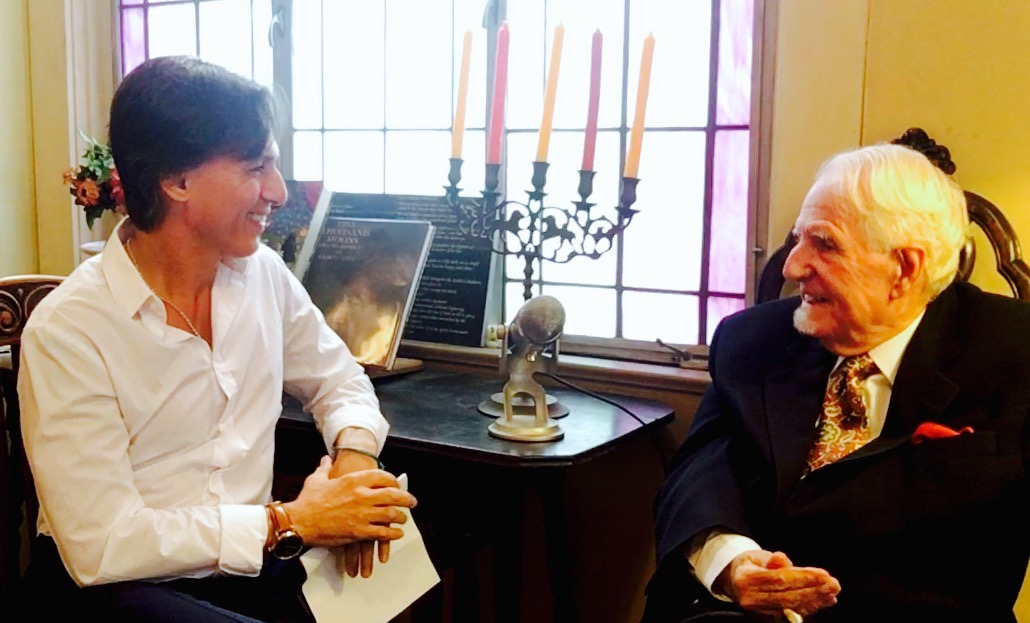
DANIEL PAPE: The hero’s journey perhaps?
DR. STEPHAN A. HOELLER: Yes, absolutely. The hero of course being ourselves and the hero’s journey discloses our own journey.
DANIEL PAPE: That makes perfect sense, and on a very personal level it truly resonates with me. It seems that we put far too much stock in facts and history; all of these things change as we ourselves change. Therefore, if I understand correctly, we must recognize the significance of the individual’s personal experience. Correct?
DR. STEPHAN A. HOELLER: Indeed, it is very important. Of course, the kind of perspective we are talking about ought not to be confused with opinion, because we are an opinionated species. An opinion is of limited value, of limited use, but a perspective which is grounded in a deep transcendental experience of the individual is vastly superior to opinion.
DANIEL PAPE: Is it possible to discern between an in depth transcendental experience that is gained through Gnosis, and something that one might call delusional realism that lacks a spiritual foundation? Certainly there is a difference.
DR. STEPHAN A. HOELLER: Of course there are experiences of the mind that are, as you say, delusional, of an unhealthy nature. To establish very precise criteria to discern these two is probably not possible. But one might say that a Gnosis type of insight becomes productive wisdom for the individual, while delusional experiences are fleeting and do not produce any useful changes or transformations within the individual. But of course, there is a kind of connection. Certain types of psychopathologies, to use a technical word, particularly of the schizophrenic kind, have various aspects that look like and maybe even contain a little bit of Gnosis. The problem is that since they have reason to remain within an unbalanced mind they cannot put Gnosis to any creative use.
DANIEL PAPE: I see, it seems to me that balance and sustainability are the key factors here. If we become unbalanced we begin to over think things, and “thinking” only leads to more “thinking.” However, when we experience Gnosis we transcend thinking.
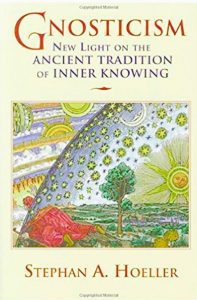 DR. STEPHAN A. HOELLER: Yes, but this type of insight should not be used to put thinking down. Thinking is a very valuable thing, but thinking can go only so far and this has been recognized in a lot of spiritual systems in the past. There was always a vision of something beyond thinking. If the personality is balanced, then thinking can be one of the agencies that processes the higher experience of Gnosis. Of course, there is an emotional content too, because a lot of really profound inner experiences of this sort create feeling. People are excited. People are ecstatic. People are happy, while or after these experiences take place for the most part. So certainly the whole hierarchy within the human being, even the physical, emotional, and intellectual are all involved. But the experience originates somewhere else outside of that.
DR. STEPHAN A. HOELLER: Yes, but this type of insight should not be used to put thinking down. Thinking is a very valuable thing, but thinking can go only so far and this has been recognized in a lot of spiritual systems in the past. There was always a vision of something beyond thinking. If the personality is balanced, then thinking can be one of the agencies that processes the higher experience of Gnosis. Of course, there is an emotional content too, because a lot of really profound inner experiences of this sort create feeling. People are excited. People are ecstatic. People are happy, while or after these experiences take place for the most part. So certainly the whole hierarchy within the human being, even the physical, emotional, and intellectual are all involved. But the experience originates somewhere else outside of that.
DANIEL PAPE: That’s wonderful, beautiful actually. I’d now like to ask you about alchemy. Not the type of alchemy that pertains to physical metals and gold, but more of a mental or spiritual type of alchemy. You touched on this in your lecture last night. If I understood correctly, you said if somebody was dedicated and possessed a certain humbleness, they would be able to receive inspiration and perception, and ultimately gain the ability to perform an inner type of alchemy. I know there’s no specific formula that you can give at this time, but can you please speak a little bit on how someone might use alchemy to transcend from within?
“While alchemy definitely had its own physical practices of a chemical and mineralogical nature, the deeper aspect of alchemy was always directed toward the transformation of the alchemist himself.”
DR. STEPHAN A. HOELLER: Of course the key concept within all alchemy is transformation. Transformation as I always try to point out is different from many other kinds of change, because it is a very substantial change where the results are extremely different from what was happening before the transformation. While alchemy definitely had its own physical practices of a chemical and mineralogical nature, the deeper aspect of alchemy was always directed toward the transformation of the alchemist himself. We have such statements from famous alchemists dating back to the middle ages saying you yourself therefore, must become a living philosopher stone. The alchemist himself is supposed to change. The external chemical processes were merely a facilitator of such change. Although of course they also had other byproducts.
We need to recognize that we are capable of and really are in need of essential transformational change. In order to facilitate the various qualities that you have mentioned here, we have to be humble, we have to recognize that what we are desirous of involves something beyond our ordinary personal resources. We have to recognize that the transformation we are desirous of involves the activity of a higher power. That is the humility. It’s not me. It’s not my ego, but it’s a higher power which I can address and which if it’s all done right will be helpful to me and facilitate this process of transformation. In the alchemical mythos this higher power was mostly envisioned as mercury. Mercury, mercurious, is the Latin term for Hermes and that’s why Hermes Trismegistus was sort of the archetypal residing being of the alchemical process. You see, you have to recognize that without the presence and the help of superior power of the holy order, which is not you, the transformation is not going to happen. That is where the humility comes in.
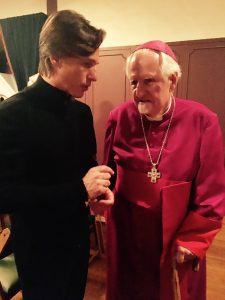 DANIEL PAPE: This is essential.
DANIEL PAPE: This is essential.
DR. STEPHAN A. HOELLER: Yes, this is absolutely essential. Amongst other things, there has to be honesty. There has to be self-reflection; the ability to look objectively at what is happening within ourselves without being caught by either negative or positive rejections.
In terms of the negative we have to be fearless. Intelligent caution is always useful, but fear is not. We have to be fearless, and on the other hand we should not be excessive with our personal desire. The process we are involved in should not be pursued to satisfy our lesser nature. We do not engage in this process because it might make us rich or more beautiful. We may become all of these things anyway, rich, influential, and more beautiful, but we don’t engage in Gnosis with these sorts of objectives in mind because they drag down the process to a lesser level.
DANIEL PAPE: I understand completely, but if not for the reasons you just mentioned, what are the reasons to seek Gnosis? What is the ultimate goal?
DR. STEPHAN A. HOELLER: I would say that one of the few goals that can be articulated is that without such experience we are incomplete, we are not whole. Deep within us we strive for wholeness and these experiences bring such a wholeness. Not all at once, but incrementally. The whole person embodies all of the qualities we mentioned. Wholeness is an incredible richness. It is so rich that even the little incremental steps we take towards wholeness makes our lives become so much richer, so much more exciting, so much more worthwhile than it has been before.
DANIEL PAPE: So true. Instead of striving to be a good person, strive to be a whole person because goodness is contained within the whole.
DR. STEPHAN A. HOELLER: Precisely. Goodness of course is relative to the standards that we are dealing with. You might say that part of the requirements along with courage and all of the other things we have mentioned is that we also gain more integrity. If you think about the very meaning of the word integrity, integere in Latin, means whole. A whole person is an integritous person.
DANIEL PAPE: Interesting.
“When you climb your own Mt. Sinai within, you receive the command, and therefore, you don’t need the commandment any longer.”
DR. STEPHAN A. HOELLER: That is what we are planning for. No doubt, but on the way to achieving this, some individuals, who are not involved in any kind of process of transformation or Gnosis, find it helpful to have some external rules to live by. These rules are important, without them we run afoul in society. However, there comes a time when the rules must come from within. One of my teachers had a little metaphorical way of putting it into biblical terms. He said, “when you climb your own Mt. Sinai within, you receive the command, and therefore, you don’t need the commandment any longer.”
DANIEL PAPE: That is such a powerful and revealing statement. It brings such clarity to the importance of inner knowledge. I suppose self knowledge is the ultimate knowledge.
DR. STEPHAN A. HOELLER: Yes, it’s the ultimate.
DANIEL PAPE: I’m recalling a book that you recommended to me by Manly P. Hall. It’s called, “Pathways of Philosophy,” and in it there’s a chapter on this very subject. Here is a small excerpt, “The ultimate form of knowledge is knowledge of self. Self knowing leads to Universal knowledge. Many may search for knowledge through schools and institutions, but each must discover for himself and within himself. “There is no royal road to learning”, said Euclid to the king of Egypt.”
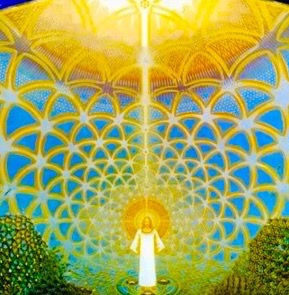 DR. STEPHAN A. HOELLER: Interestingly enough, what comes from self knowledge doesn’t really conflict radically with what generally has been considered to be the good and desirable way to be. We don’t become murderers, we don’t become cheats, we don’t become rapists or anything of that sort, but we act out of our own deeper consciousness which, in addition to that, has the immense benefit that it is tailor made for the occasion, because it comes out of your Gnosis not somebody else’s. Not the Gnosis of the houses of congress who pass the laws. It’s yours. It’s made for the situation in your life and then you know this is what I must or must not do.
DR. STEPHAN A. HOELLER: Interestingly enough, what comes from self knowledge doesn’t really conflict radically with what generally has been considered to be the good and desirable way to be. We don’t become murderers, we don’t become cheats, we don’t become rapists or anything of that sort, but we act out of our own deeper consciousness which, in addition to that, has the immense benefit that it is tailor made for the occasion, because it comes out of your Gnosis not somebody else’s. Not the Gnosis of the houses of congress who pass the laws. It’s yours. It’s made for the situation in your life and then you know this is what I must or must not do.
That’s certainly a very important and very wonderful thing when it happens.
DANIEL PAPE: Yes, it really is. Let me ask you about “The Hero’s Journey.” It seems to have a recurring theme in which a tragedy or conflict has to be overcome. Does conflict play a role in our spiritual evolution? And if so, why do we spend our lives trying to avoid it, instead of using it to grow?
DR. STEPHAN A. HOELLER: It’s a little bit difficult to generalize, but certainly the type of conflict which doesn’t entail our own private warfare with somebody can be part of the process at certain stages of our development. For example, conflict is present at certain points in the alchemical transformation, because conflict is one of the ways in which opposites interact with each other. In practical terms, lets say we all have a powerful emotional and intellectual nature, but these two are often in conflict. My feelings want me to do one thing, but at the same time my thinking mind says, “If you do that you will incur certain hazards.”
There is an inner conflict, and this conflict must somehow be resolved in a creative manner. A manner whereby we are not repressing either our feelings or our thinking, but instead come to a good mutual agreement.
It is important to recognize that the conflictual relationship is the predecessor of a unified action. I’m Hungarian by birth and my upbringing has a lot of agricultural metaphors. One of them is “you have to strive for the conclusion where the goat gets fed and some cabbage is saved at the same time.”
DANIEL PAPE: Everybody wins.
DR. STEPHAN A. HOELLER: Then everybody wins. Conflict is certainly not necessarily bad because it can be a stage of development. Of course, we must keep in mind that stages are to be experienced and then left behind. If we get stuck in them we are spinning all of our psychological wheels and we are not getting anywhere.
DANIEL PAPE: I know there have been times in my own life when I seemed to get stuck in conflicting patterns. These patterns, when sustained over long periods of time, usually led to negative results. I can now see the importance of making sure these inner struggles are, as you say, “experienced and then left behind.”
DR. STEPHAN A. HOELLER: That is definitely the goal.
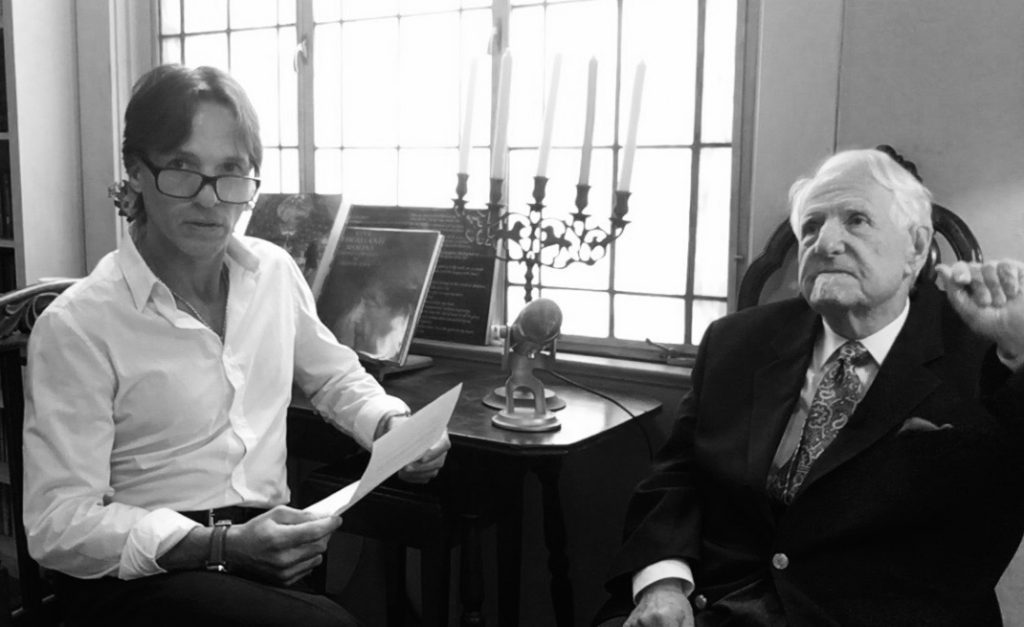
DANIEL PAPE: Speaking about your Hungarian background, I know your journey through theology must have been remarkable. Our readers, including myself are all on our own spiritual path. Some of us are business people, and it’s not so much about money as it is about being prosperous and abundant so we can serve more people. What are your thoughts on using business in a spiritual way and becoming abundant in the process. Can you speak on that?
DR. STEPHAN A. HOELLER: Oh yes. I would very much agree with that proposition, because commerce is an extremely important human activity. It can certainly be utilized for the good of people. Just the sheer ability of an industrial and commercial civilization such as ours to do good exceeds any and all purely agricultural or hunter gatherer societies. Why? Because it liberates resources. It creates wealth. It creates methods whereby people are healthier and wealthier and happier than they otherwise would be. But, of course, every kind of method that we employ in life also has a shadow side. When the sun is shining, the shadow is there. That’s why shadow is such a good metaphor. The only time the shadow is not there is when there is no sunshine. Yet, we need sunshine and we like the sunshine. Maybe sometimes it gets a little bit too much.
Let’s say the process of creating wealth brings the temptation of greed and egotism and things of that realm, we begin to think “I am really the cock of the walk” because I have built up a great business and made a lot of money or whatever the case may be. There has to be an innate humility going along with all that. I have lived in communist society, in social democrat society, and I have lived in capitalist America and my feeling is capitalist America is better.
DANIEL PAPE: Well said, and as we conclude our discussion doctor I was wondering if you would take a few minutes to share with me and our readers what you believe is the most productive way someone can lead their life with all of this knowledge and Gnosis. Before we get into it allow me to give a quick example of what I mean. It’s a little silly, but when I was just a kid I felt very comfortable with the spiritual realm. I use to ask my mother, “Mom, what is the best thing I could possibly do to help people?” She said, “smile, just smile,” and I thought, “that can’t be it.” I wanted it to be some grandiose thing. She said, “just smile at people.”
DR. STEPHAN A. HOELLER: And you know there are a lot of cultures including the one I was born into where smiling is much less frequent than in America. The desirable facial expression is sort of a solemn one.
You smile when there is something specific to smile about. It took me quite a while to recognize that this is a different matter over here and it’s really quite okay to smile.
DANIEL PAPE: I was just a kid back then, but I believe my mother was onto something fundamentally important. A smile, as simple as it may be, can be very uplifting when it comes from a genuine place. Now as adults, what would you say is the most productive thing we can do for ourselves and others?
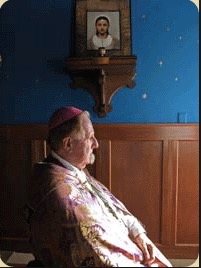 DR. STEPHAN A. HOELLER: I would say this, if at all possible, there has to be an ongoing, striving for greater wholeness and consequently for greater integrity. Of course, one of the truly wonderful things about a transformation in wholeness is that one receives guidance, that’s probably the best word, of an intuitive nature to an increasing degree, so that here you are, and maybe you have a choice of doing this, doing that, doing the other thing, and your intuitive guidance kicks in “this is what you should do.”
DR. STEPHAN A. HOELLER: I would say this, if at all possible, there has to be an ongoing, striving for greater wholeness and consequently for greater integrity. Of course, one of the truly wonderful things about a transformation in wholeness is that one receives guidance, that’s probably the best word, of an intuitive nature to an increasing degree, so that here you are, and maybe you have a choice of doing this, doing that, doing the other thing, and your intuitive guidance kicks in “this is what you should do.”
You begin to lead an inspired life that is guided by a wisdom that is not really of this world, it is a deeper wisdom that is not always in conflict either. You really begin to lead an intuitive life that is very creative, a way of life that is more common among the artists of the world. This is because the artist depends on inspiration if he’s really an honest artist.
“You might say that science is the child of the art, because from the intuitive guidance there come all kinds of byproducts.”
Interestingly enough in the middle ages they called alchemy, “the art. The great art.” Not the science, but “the art.” You might say that science is the child of the art, because from the intuitive guidance there come all kinds of byproducts. We know for instance, just again as an analogy, that alchemy may or may not have produced gold at times but alchemy produced over the centuries an incredible number of byproducts which we still use. Modern chemistry is the child of alchemy. Once again, those are byproducts they are not the objective. If we try to lead an intuitive life, which really means when intuition kicks in we really have to trust it. We have to recognize it’s virtue, it’s imperative quality and then go with it. When we do that we really have a productive, inspired, and happy life. Other people might say “oh, you can’t have a happy life because you don’t own a house. You don’t have this. You don’t have that,” but you realize that you have something. Something extremely important and wise. You have access to creative guidance, and there’s no substitute for that.
DANIEL PAPE: Thank you Stephan. This has been very helpful. I truly appreciate and value everything you shared with us today, and on that note, I will just say thank you and stay inspired.
DR. STEPHAN A. HOELLER: That’s it. Let us try to stay inspired. I enjoyed this greatly and I’m very glad we did it.


